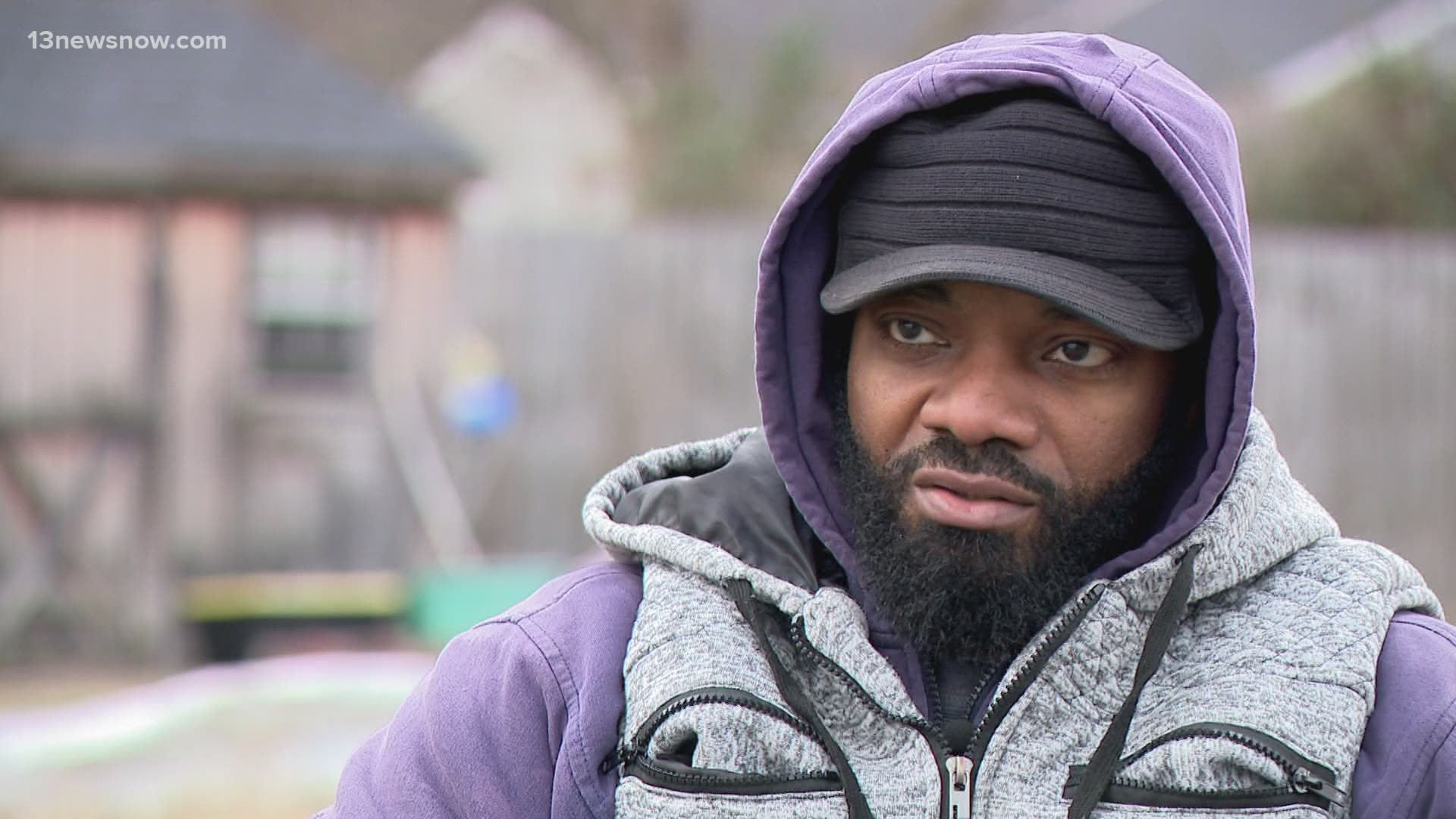HAMPTON, Va. — Thelonius Cook’s roots run deep through Hampton Roads.
It was at his parents' house in Hampton -- or rather the quarter-acre plot of land behind it -- where he first experienced what it was like to be a farmer.
"I didn’t actually like farming as a kid, this was just part of my chores growing up during the summer especially,” Cook told 13News Now on a cold February day. "One of the jobs me and my sister had to do was come out here and weed, and pick beans."
It wasn’t until years later, as a student at James Madison University, where his appreciation for his upbringing grew.
“I think the initial seed was planted when I was actually at undergrad. I was at the grocery store and looking everywhere for collard greens. My roommate took me down the canned food aisle and pulled this can of "Glory Foods" greens. At that point, I’d never seen collard greens in a can before.”
Years later as an I.T. professional, Cook had the chance to work overseas by helping develop technology in rural areas of Africa. The trip back to his homeland was unlike anything he’d experienced before.
“The sights, the language, it’s all different," Cook said. "The stories we often get is one of poverty, war, corruption, that sort of thing. So the other side was interesting to see.”
While there, Thelonius saw first-hand the differences between African and American cultures, particularly in farming.
"I saw farmers throughout the continent. I didn’t see any using tractors, and most were using hand tools. I figured, 'Why can’t I use those same practices here?'”
Upon his return home, Thelonius began upkeeping a plot of land on Virginia's Eastern Shore; family land that had begun reverting back to its natural eco-system. It is here where the "Mighty Thundercloud Edible Forest" grew into a sustainable farm, and Cook's passion project.
"It’s not industrialized, meaning I don’t have a lot of tractors and things like that. I intentionally didn’t want to.”
Thelonius keeps his carbon footprint small by using only his hands to work the land.
"I do a lot of work by hand. Organic -- I know that’s a loaded term -- but organic practices.”
His minimalistic farming techniques not only promote sustainability on his farm but offer a way to honor his African-American ancestry, much of which relies on natural techniques he implements back home. He almost never tills his land and uses no modern technology to farm his crops of fresh produce.
"What that does is, once you till up the land, you’re releasing thousands of tons of carbon dioxide into the atmosphere,” he said.
All of Cook's practices revolve around sustainable, organic farming to get away from industrialized practices. He grows companion crops to reduce the need for unnatural pesticides and relies heavily on soil created by earthworms on his own property.
Thelonius says he's rare for the farming community.
"You don’t find too many Black people that voluntarily go back to the land to farm."
According to the United States Department of Agriculture, of the more than 3 million farmers across the United States, only 1.4 percent are Black. This is based on a Census of Agriculture in 2017, citing less than 50,000 Black producers in the farming community, spread out over 4.7 million acres.
Thelonius says much of this is due to the negative association Black people have with farming.
"For a lot of African-American people, their first thought when they ride over to the Eastern Shore when they see those cotton fields, there’s a disassociation. 'I don’t want anything to do with that.' It brings up these emotions."
He represents an underrepresented community but says there is a slowly growing trend of Black farmers returning to their roots like himself in the mid-Atlantic.
"There is a new crop of returning generation farmers in the mid-Atlantic area. Urban farmers in the DC-Baltimore area. And I know some smaller farmers here that are trying to return to the land and reclaim family land. Reclaim African heritage.”
Thelonius' crops are bountiful, once they're ready to be picked. He says that another way he ensures it doesn't go to waste is that he's begun working with local organizations to combat food insecurity in the area.
"It's a problem in this country, particularly communities of color. I grew up in this neighborhood, when you go to some of these stores that people have access to, it’s not a lot of healthy food.”
Thelonius hopes to grow the Mighty Thundercloud Edible Forest until it's not only his passion project, but his entire career.
Every new seed he plants helps write a new narrative, one that is rooted in history. But it is a history that’s changing, as it grows.
"I think about all the people, the ancestors who tilled these fields as enslaved people. But today, I’m doing it as returning generation, sort of reconnecting.”

